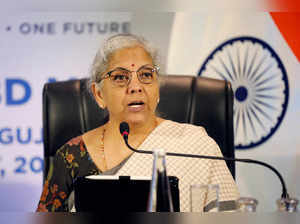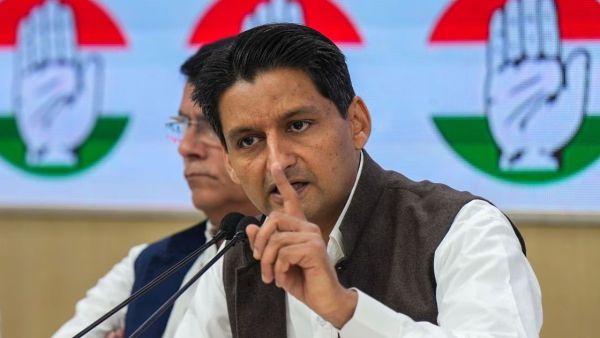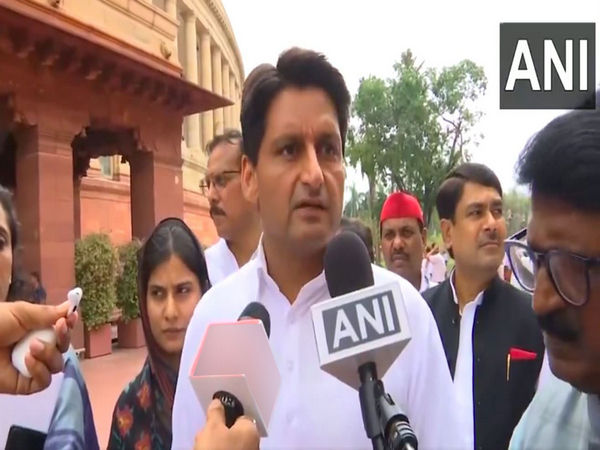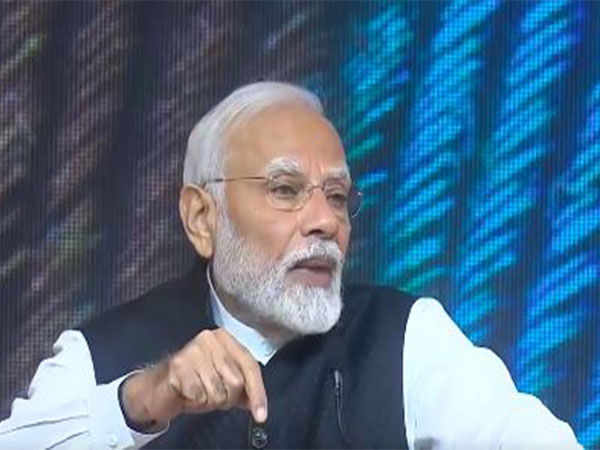Finance minister Nirmala Sitharaman on Friday said the coming decades will see the steepest rise in living standards for the common man, making them "a period-defining era for an Indian to live in".
While the country took 75 years to achieve a per capita income of $2,730, as per the International Monetary Fund (IMF) projection, it will take only five years to add another $2,000, Sitharaman said at the inaugural session of the finance ministry's Kautilya Economic Conclave in the capital.
The 'Indian era', she said, will be shaped by its predominantly young population who will provide a large base for total factor productivity improvements, savings and investment.
About 43% of Indians are younger than 24 years, so there will be organic growth in consumption as they become full-fledged consumers, the minister said. "Simultaneously, a rising middle class will pave the way for strong consumption, inflow of foreign investment, and a vibrant marketplace." The financial system is now well capitalised to fuel productive credit growth and the country's innovation prowess is maturing across sectors, she said.
"Ensuring that the financial system stays healthy and the cycle lasts longer is another of our core policy priorities," she added.
"India also finds itself amidst a global geopolitical re-positioning. This re-positioning can act as a structural force to India's advantage by creating robust supply chains with countries with strategic congruence," Sitharaman said.
Inequality has been declining, as reflected in the Gini coefficient gauge, and would improve further on the back of reforms, she said.
By 2047, as India crosses the 100 years of its independence, it will have core characteristics similar to developed countries, Sitharaman said.
The IMF has forecast India will remain the world's fastest-growing major economy in the current fiscal year and the next, with rates of expansion touching 7% and 6.5%, respectively - more than double the global averages.
Growth in a tougher environment
The finance minister stressed that India seeks to double its per capita income "in a fragmented and fractured world where several persistent conflicts may worsen, posing a threat to global peace that is the bedrock of prosperity." "In the early 2000s, emerging markets like China grew relatively more easily due to a favourable global trade and investment climate," she said.
Fiscal discipline and reforms
The "commitment to fiscal discipline will not only help keep bond yields in check but will translate to lower economy-wide borrowing costs," Sitharaman said. The fiscal deficit is estimated to decline from 5.6% of GDP in FY24 to 4.9% this financial year. The decline in commodity prices has facilitated the lowering of the budgeted allocation for subsidies on fertiliser and fuel, she said.
While the country took 75 years to achieve a per capita income of $2,730, as per the International Monetary Fund (IMF) projection, it will take only five years to add another $2,000, Sitharaman said at the inaugural session of the finance ministry's Kautilya Economic Conclave in the capital.
The 'Indian era', she said, will be shaped by its predominantly young population who will provide a large base for total factor productivity improvements, savings and investment.
About 43% of Indians are younger than 24 years, so there will be organic growth in consumption as they become full-fledged consumers, the minister said. "Simultaneously, a rising middle class will pave the way for strong consumption, inflow of foreign investment, and a vibrant marketplace." The financial system is now well capitalised to fuel productive credit growth and the country's innovation prowess is maturing across sectors, she said.
"Ensuring that the financial system stays healthy and the cycle lasts longer is another of our core policy priorities," she added.
"India also finds itself amidst a global geopolitical re-positioning. This re-positioning can act as a structural force to India's advantage by creating robust supply chains with countries with strategic congruence," Sitharaman said.
Inequality has been declining, as reflected in the Gini coefficient gauge, and would improve further on the back of reforms, she said.
By 2047, as India crosses the 100 years of its independence, it will have core characteristics similar to developed countries, Sitharaman said.
The IMF has forecast India will remain the world's fastest-growing major economy in the current fiscal year and the next, with rates of expansion touching 7% and 6.5%, respectively - more than double the global averages.
Growth in a tougher environment
The finance minister stressed that India seeks to double its per capita income "in a fragmented and fractured world where several persistent conflicts may worsen, posing a threat to global peace that is the bedrock of prosperity." "In the early 2000s, emerging markets like China grew relatively more easily due to a favourable global trade and investment climate," she said.
Fiscal discipline and reforms
The "commitment to fiscal discipline will not only help keep bond yields in check but will translate to lower economy-wide borrowing costs," Sitharaman said. The fiscal deficit is estimated to decline from 5.6% of GDP in FY24 to 4.9% this financial year. The decline in commodity prices has facilitated the lowering of the budgeted allocation for subsidies on fertiliser and fuel, she said.








